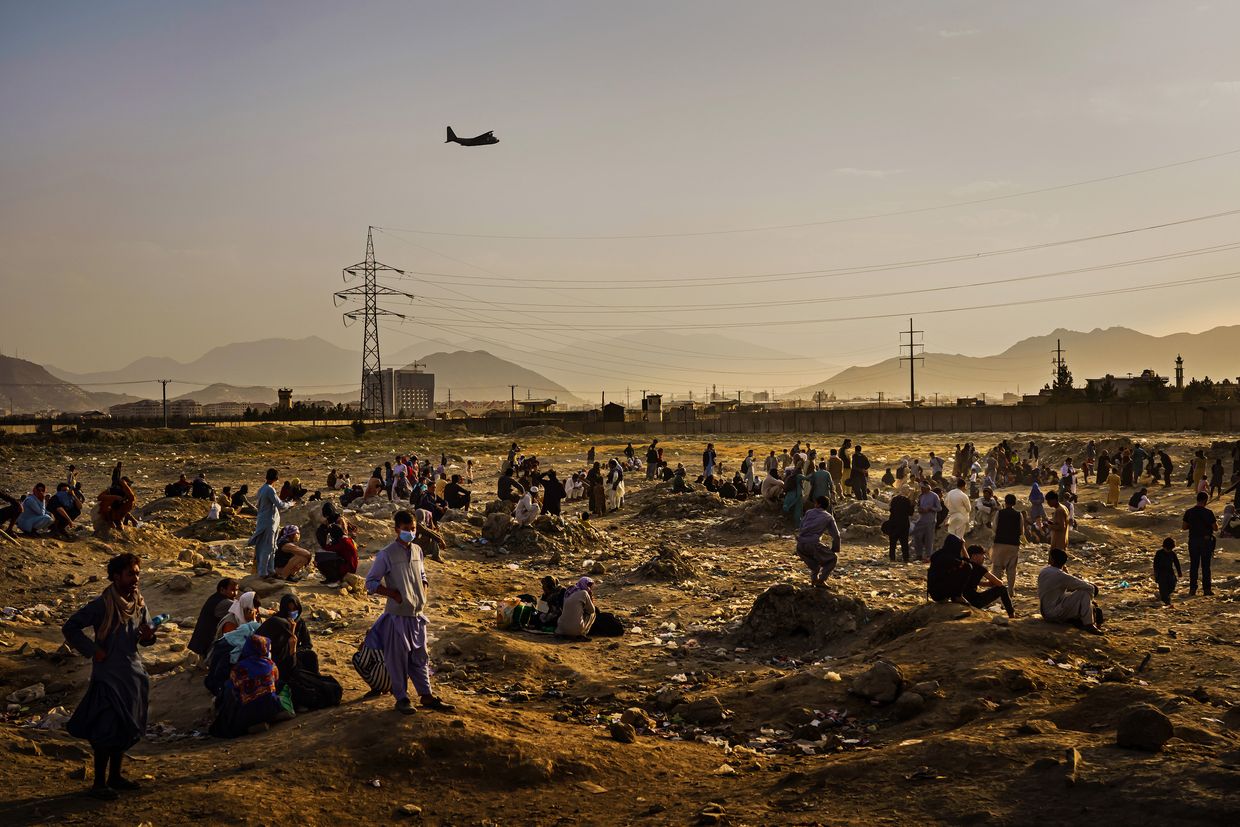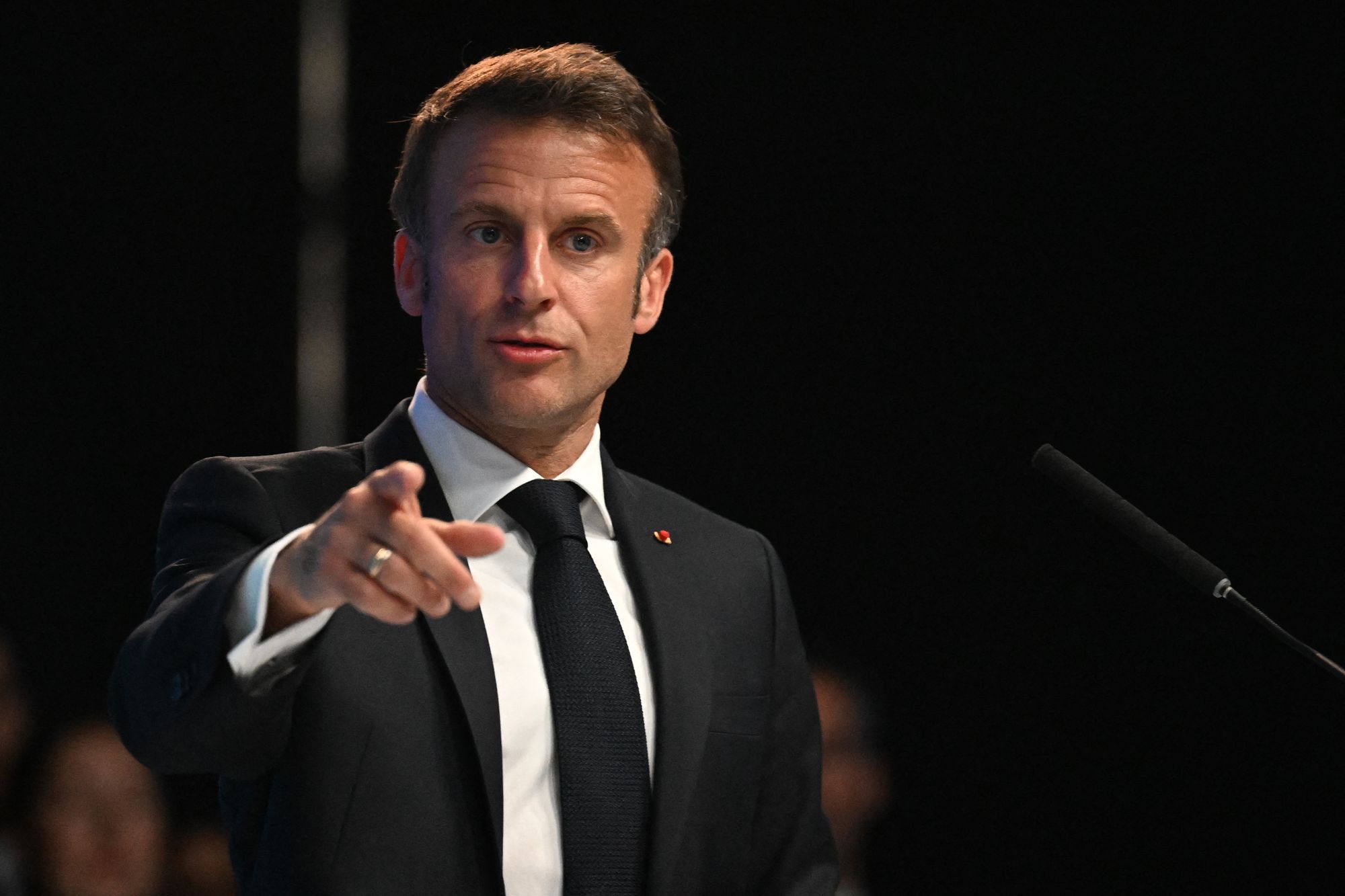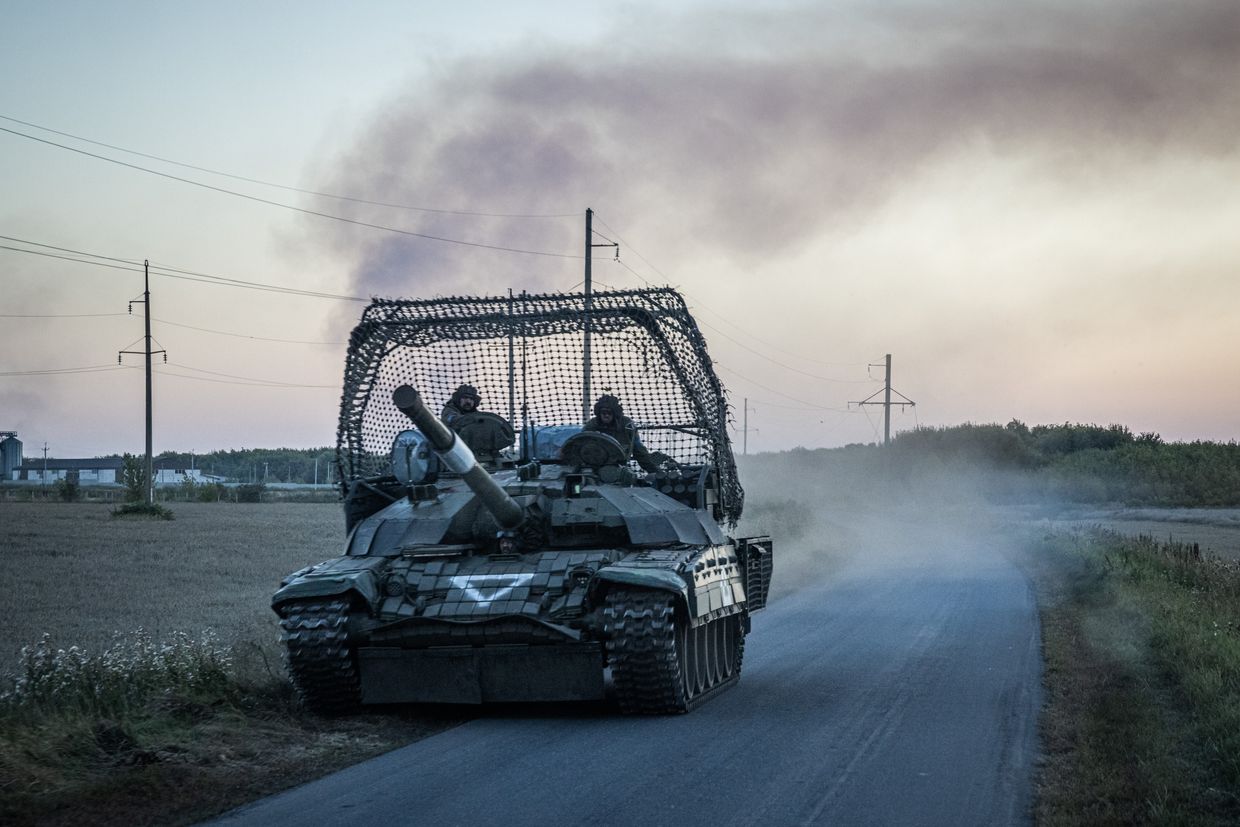Ukraine war latest: Ukraine, US reach agreement on minerals deal

Key developments on Feb. 25:
- Ukraine, US reach agreement on minerals deal
- Russia's war objectives 'not yet achieved,' Kremlin's ambassador says
- Reclaiming occupied territories possible but 'not easy' for Ukraine, Trump claims
- Ukraine needs $524 billion for recovery, reconstruction after 3 years of Russia's full-scale war
- Russia's Ryazan oil refinery halts operations following drone strike, Reuters reports
Ukraine has reached an agreement with the U.S. on a minerals deal, Olha Stefanishyna, Ukraine’s deputy prime minister and justice minister, told the Financial Times on Feb. 25.
President Volodymyr Zelensky's office confirmed to the Kyiv Independent that an agreement has been reached.
The negotiations around the deal have fueled tensions between U.S. President Donald Trump and Zelensky in the past week.
According to the Financial Times report, Ukraine has secured more favorable terms and framed the deal as a way to strengthen ties with the U.S.
Zelensky is expected to head to Washington for a signing ceremony in the coming weeks, according to the Financial Times.
The final version of the agreement, dated Feb. 24, establishes a fund to which Ukraine will contribute 50% of proceeds from the "future monetization" of state-owned mineral resources, including oil, gas, and related logistics. The fund will invest in projects within Ukraine.
The deal excludes resources that already contribute to Ukraine's state budget, meaning it will not cover operations by Naftogaz and Ukrnafta, the country's largest oil and gas producers.
The agreement does not include security guarantees from the U.S., which Kyiv had initially insisted on.
The latest draft of the agreement drops earlier U.S. demands for a $500 billion claim over Ukraine’s natural resources, which had been a major sticking point, according to the Ukrainian media outlet Economic Pravda, which has seen the agreement.
Under the revised terms, the fund will receive 50% of revenues from Ukraine’s resource-related infrastructure, including ports. Joint ownership will be determined based on actual financial contributions, and while management will be shared, the U.S. will have decision-making authority under its own laws.
The questions of the U.S. stake in the fund and the terms of “joint ownership” will be addressed in follow-up agreements, according to the Financial Times.
Zelensky had previously rejected the U.S. proposal, citing the lack of security guarantees and objecting to the 1:2 repayment structure, which would have required Ukraine to return two dollars for every one received in aid.
The Trump administration has increased pressure on Ukraine to finalize the deal in the past weeks, with Trump publicly attacking Zelensky, calling him a "dictator without elections" and urging him to "move fast, or he won’t have a country left."
Trump has framed the agreement as a way to strengthen Ukraine’s economy while ensuring the U.S. "recoups the tens of billions of dollars and military equipment sent to Ukraine."
Russia's war objectives 'not yet achieved,' Kremlin's ambassador says
Russia's stated goals in its war against Ukraine remain unachieved despite ongoing diplomatic efforts to start peace negotiations, Russian Foreign Ministry's Ambassador-at-Large Rodion Miroshnik said on Feb. 25, according to the Russian state-owned news agency TASS.
"The objectives of the Special Military Operation have not yet been achieved," Miroshnik said, using the Kremlin's term for its war against Ukraine.
The objectives include Russia's failure to fully occupy Ukraine's four regions it has illegally annexed and the need to ensure Kyiv no longer "poses a threat" to Moscow.
"The constitutional territories of Russia have not been liberated," he said.
Russia illegally annexed Ukraine's Crimea in 2014, followed by Kherson, Zaporizhzhia, Donetsk, and Luhansk oblasts in 2022.
Moscow does not control all of these territories, including the regional capitals of Kherson and Zaporizhzhia. Russian President Vladimir Putin has demanded Ukraine withdraw from all four oblasts as a condition for negotiations.
Miroshnik said that while military objectives remain unachieved, Russia may attempt to achieve them through future negotiations.
Russian Foreign Minister Sergey Lavrov said on Feb. 24 that Moscow would agree to a ceasefire only if negotiations yield a "sustainable result" that "suits" Russia.
The U.S. held direct talks with Russia in Saudi Arabia on Feb. 18, excluding Ukraine from the meeting. The decision sparked criticism in Kyiv and Europe, with leaders concerned about being sidelined in negotiations.
Preparations are underway for a meeting between U.S. President Donald Trump and Putin, with Russian Deputy Foreign Minister Sergei Ryabkov saying it could happen by the end of February.
Trump said on Feb. 24 that Russia's war against Ukraine could end "within weeks" and claimed Putin would accept European peacekeepers in Ukraine as part of a potential deal.
The U.K. is reportedly preparing a plan to deploy 30,000 European troops as a post-ceasefire security guarantee.
Western intelligence officials have expressed skepticism about Moscow's willingness to negotiate in good faith. NBC News reported on Feb. 18 that Putin is not serious about a peace deal and is instead using talks to consolidate Russian territorial gains.
Reclaiming occupied territories possible but 'not easy' for Ukraine, Trump claims
U.S. President Donald Trump said on Feb. 24 that he believes Ukraine might be able to reclaim some of its territories occupied by Russia, but it would be challenging.
He stated this in response to journalists during a meeting with French President Emmanuel Macron, which took place at the White House.
"You’re asking whether or not they (Ukrainians) could take back the land that they lost. And I say that yes, perhaps some of it, yes. But that’s not an easy thing to do,” Trump said.
He also noted that this question is part of the current negotiations that have recently started with Russia.
“We’ll see,” Trump said. “There has been a lot of land that has been taken, so we will have to see how it works out. It’s part of the negotiation.”
The U.S. held the first round of talks directly with Russia on Feb. 18, excluding Ukraine from the meeting. The decision sparked a backlash in Europe and Ukraine, with European leaders worried they were being sidelined by the U.S.
Macron has recently rallied European counterparts to discuss security guarantees for Ukraine. U.K. Prime Minister Keir Starmer is expected to visit Washington later this week to meet with Trump.
Ukraine needs $524 billion for recovery, reconstruction after 3 years of Russia's full-scale war
The cost of reconstruction and recovery in Ukraine after three years of Russia's full-scale invasion will be $524 billion over the next decade, the U.N. reported on Feb. 25, citing data from Ukraine's government, the World Bank, the European Commission, and the U.N.
Since the beginning of the full-scale invasion, Russia has been attacking Ukrainian cities and villages daily, destroying residential buildings, critical infrastructure, cultural heritage sites, and sports venues, among other facilities.
The required reconstruction costs are 2.8 times higher than Ukraine's nominal GDP for 2024, according to the report.
Direct losses in Ukraine reached $176 billion at the end of December 2024 compared to $152 billion in February last year, the Rapid Damage and Needs Assessment (RDNA4) by the World Bank estimated.
Housing, transportation, energy, trade and industry, and education sectors have suffered the most from Russian attacks, the report read.
Some 13% of Ukraine's total housing stock was damaged or destroyed, affecting over 2.5 million homes.
In the energy sector, the number of damaged or destroyed assets, including production, transmission, distribution, and district heating infrastructure, increased by 70%.
Donetsk, Kharkiv, Luhansk, Zaporizhzhia, Kherson, and Kyiv oblasts sustained nearly 72% of the total damage.
Russia's Ryazan oil refinery halts operations following drone strike, Reuters reports
Russia’s Ryazan oil refinery suspended operations after a Ukrainian drone attack set its main crude distillation unit, CDU-6, on fire, Reuters reported on Feb. 24.
The refinery, owned by Russia's state energy company Rosneft, halted oil processing entirely, multiple industry sources told Reuters.
However, it may partially resume operations within days by using CDU-4 and CDU-3 units, while CDU-6 is repaired.
The attack caused at least five explosions, with local authorities attributing the fire to falling drone debris.
This refinery had only recently resumed activity on Feb. 11 following an 18-day shutdown after a previous attack.
This is the third time since the beginning of 2025 that drones have attacked the Ryazan Oil Refinery, according to the independent Telegram channel Astra.
The Ryazan Oil Refinery is one of Russia's five largest oil refining facilities, according to Andrii Kovalenko, head of Ukraine's Center for Countering Disinformation. Its capacity is 17.1 million metric tons of oil per year.
Kovalenko added that the fuel produced at the enterprise is used by the Russian army's strategic long-range aviation, which launches missile strikes against Ukraine.
Note from the author:
Ukraine War Latest is put together by the Kyiv Independent news desk team, who keep you informed 24 hours a day, seven days a week. If you value our work and want to ensure we have the resources to continue, join the Kyiv Independent community.















